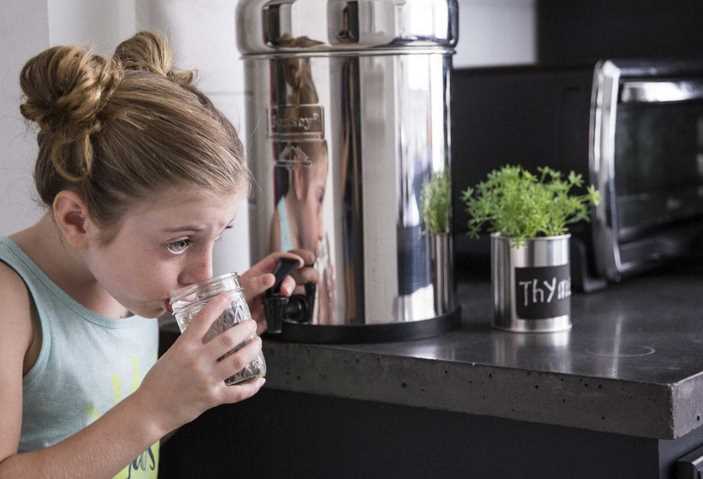You must be knowing that the water crisis is a phenomenon that is becoming severe day by day. Studies show that many major cities worldwide might not have an adequate freshwater supply within a few years. Also, it is crucial to make sure that your family consumes only safe, clean, and healthy water at home. Therefore, you need appliances like a water purifier for your home.
This will ensure that you can drink pure and clean water. So if you are planning to purchase a water purifier, you can follow this guide while deciding. Let us now explore some of the essential aspects of selecting the right type of water purifier for your home.
What Are The Factors That Can Influence Your Decision Of Purchasing Water Purifiers?
As you know, water is the elixir of our life. It is vital for our survival and for performing our daily chores successfully. However, drinking unhealthy water might cause waterborne diseases like diarrhea, cholera, dysentery, typhoid, and cardiovascular diseases. Therefore, we need to purify the tap water, which contains suspended impurities and pollutants that needs to be removed before consumption.
Even though traditionally, it was boiled and cooled down to kill bacteria and remove suspended particles, today, this job is done by an advanced water purifier that cleans the water but retains the essential minerals. However, you need to follow the right steps to select the best water purifier. For instance, you can also get the best water purifier in Bangalore if you follow these guidelines closely.
Step 1: Begin With A Water Quality Check
This is one of the first steps you need to follow if you are looking for the right type of water purifier for home. In addition, you must be knowing that the water quality level varies from one area to another; therefore, if you have shifted to a new place, you need to check the quality of your water supply before purchasing.
Do you know why this is highly significant? Well, it is because judging a sample of this water will let you know about the hardness level, salinity, and TDS levels; if you notice that the meter shows 500 ppm or above, you would need an RO water purifier for your home.
Step 2: Check The Purification Levels
Once you have got an idea about the TDS level of the water supply in and around your house, you can now move on to check the purification levels. If you notice that the TDS reading is within 500 ppm, you can use regular UV water purifiers.
However, suppose you notice that the levels exceed the 500 ppm mark. In that case, you have to opt for advanced water purifiers like reverse osmosis water purifiers or a combination of RO+UV for your home. They can remove up to 99.99% of pollutants and contaminants, which can be the best option in areas with high TDS levels.
Step 3: Adequate Storage Capacity
This is also one factor influencing your decision to buy a water purifier. This is because the storage capacity has to be such that it pertains to the family’s needs. Therefore, it mainly depends on the family size and daily water consumption. Also, if you reside in an area that faces regular power cuts, you might need water purifiers with large storage tanks.
Therefore, before purchasing, you should take note of this aspect and buy the right water purifier so that later on, you don’t face any problems regarding the water supply.
Step 4: Look For Some Additional Features
Additional features of a water purifier will always make your purifier even more advanced. But, at the same time, it also ensures that you get the purest form of water. So do you know what features we are talking about? It can include auto switch off, filter change warning, membrane change warning. Also, features like power-saving, warning alarms, LED lights might be available in some models.
All these are essential for your comfort and convenience. Often you might come across situations when your filters need a replacement, so having these additional features, will help you stay relaxed.
Step 5: Service & Maintenance
After using a water purifier for a long time, certain parts, like membranes and filters, might need a change or repair. Therefore, before purchasing, you must calculate the cost you have to incur post-purchase. This might include charges like membrane change, UV light change, alarm and filter change, storage tank cleaning, etc.
Therefore, keeping these additional costs of service and maintenance in mind would help you to manage the expenses in the future days if the appliance malfunctions in any way.
How Do Water Purifiers Work?
You must know that water passes through many different filtration processes. An inlet tap also allows the purifier to receive the source water. After that, the water moves to the RO chamber.
It is here that the impure source water gets purified. First, the water passes through a delicate semi-permeable membrane where all the impurities like dirt, ions, pesticides, etc., are removed. After that, the water moves to the Ultra Violet treatment. As you know, it is a high-powered chemical light that can destroy up to 99.9% of bacteria, viruses, and other harmful chemicals.
Summing it Up
So as we conclude, we can say that if you are going buy a water purifier for your home, you can follow this guide. So, for instance, even though you want to buy the best water purifier in Bangalore, you can follow these guidelines.
